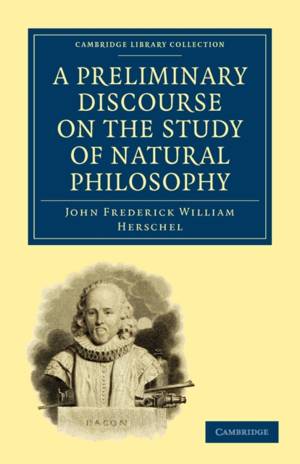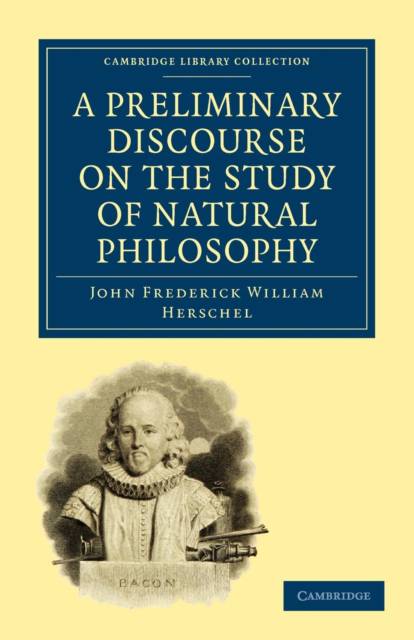
- Afhalen na 1 uur in een winkel met voorraad
- Gratis thuislevering in België vanaf € 30
- Ruim aanbod met 7 miljoen producten
- Afhalen na 1 uur in een winkel met voorraad
- Gratis thuislevering in België vanaf € 30
- Ruim aanbod met 7 miljoen producten
Zoeken
A Preliminary Discourse on the Study of Natural Philosophy
John Frederick Herschel
€ 39,45
+ 78 punten
Uitvoering
Omschrijving
Astronomer and philosopher J. F. W. Herschel's A Preliminary Discourse on the Study of Natural Philosophy, originally published in 1830, can be regarded as the first modern work on the philosophy of science. In this book, Herschel carefully sets out what he regards as the principles and methods of scientific investigation, both at a theoretical level and at the level of experiment or observation. He describes nature as being governed by laws which are difficult to discern by mere observation and so deduces that theoretical science requires analogical reasoning. In the Discourses, written as the first in a series called Cabinet Cyclopaedia, he covers a wide range of methodological, scientific and philosophical subjects that include discussions of contemporary astronomy, atomism and chemistry. His writing on light is heavily influenced by Newton. Herschel also ponders the differences between human beings and animals and the relationship between religious faith and scientific enquiry.
Specificaties
Betrokkenen
- Auteur(s):
- Uitgeverij:
Inhoud
- Aantal bladzijden:
- 388
- Taal:
- Engels
- Reeks:
Eigenschappen
- Productcode (EAN):
- 9781108000178
- Verschijningsdatum:
- 20/07/2009
- Uitvoering:
- Paperback
- Formaat:
- Trade paperback (VS)
- Afmetingen:
- 140 mm x 216 mm
- Gewicht:
- 489 g

Alleen bij Standaard Boekhandel
+ 78 punten op je klantenkaart van Standaard Boekhandel
Beoordelingen
We publiceren alleen reviews die voldoen aan de voorwaarden voor reviews. Bekijk onze voorwaarden voor reviews.








